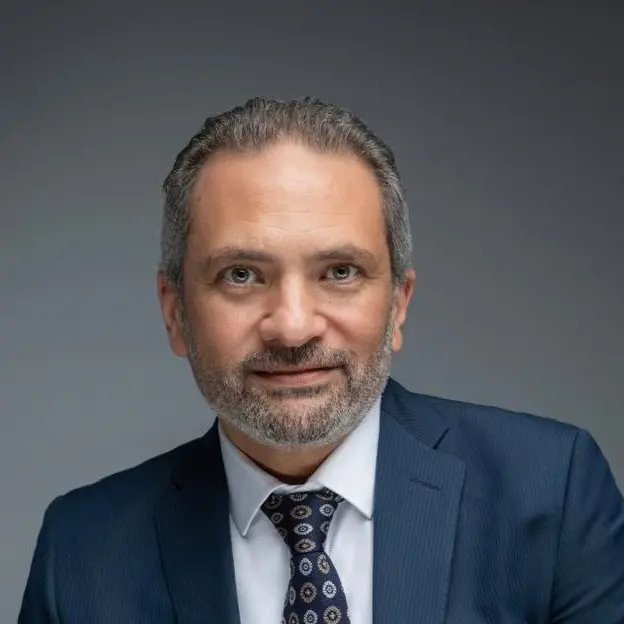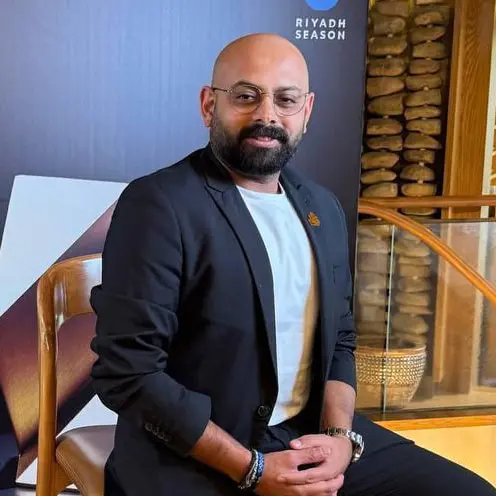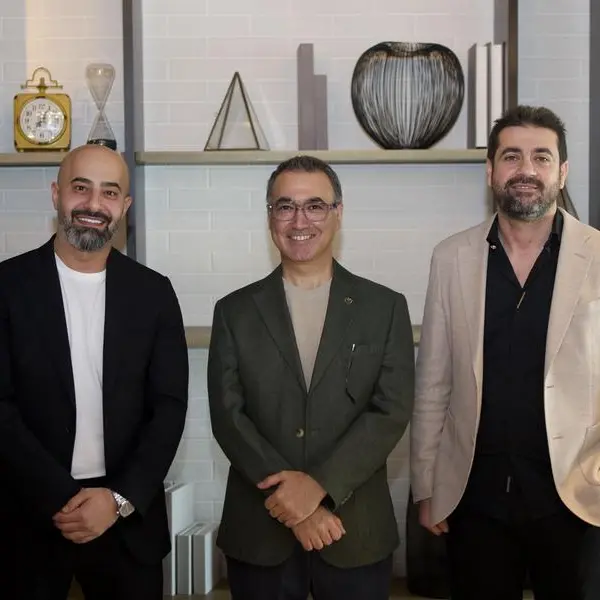Doha, Qatar: Young people shouldn’t need to “take to the streets” to make themselves heard, and the United Nations should lead the way in avoiding the tokenism trap when it comes to involving the voice of youth in big conversations, the head of Qatar Foundation’s global education think-tank has told an international panel discussion.
Stavros Yiannouka, CEO of WISE – an initiative dedicated to shaping the future of education through innovation and collaboration – was speaking during a series of virtual events organized by Qatar Foundation (QF) as part of its contribution to the UN’s 2021 Global Goals Week, as he emphasized the need for education systems to focus on “scientific literacy, reason, and applied ethics”, and his concerns that, across the world, this is not happening.
As well as a session on youth and decision-making, QF also brought together experts from its ecosystem and around the world to discuss impact investment in edtech, and whether “digital credentialing” and skills recognition systems can make young people more workforce ready.
“Young people actively need to engage without taking to the streets,” Yiannouka said. “Bodies like the UN and its constituent agencies need to take the lead in facilitating that engagement, and giving young people a real voice in decision-making that goes beyond invitations to high-profile activists to occasionally address world leaders.
“We need to give the youth a seat at the table and an opportunity to help set the agenda.”
Yiannouka argued that, while instilling traits such as agility and resilience in young people is valuable, it does not equip them to influence policy. “We urgently need to create a common intellectual and ethical problem-solving framework, and that will only come if our education systems prioritize scientific literacy, reason, and applied ethics,” he said.
“If we’re really serious about future-proofing the young through education, we have to get these basics right. And the truth is that we’re far from it, even in the world’s most advanced economies.
“Perhaps more than any generation before them, young people are very skeptical, if not downright hostile, toward the prevailing economic model, and it’s not hard to see why. Asset price inflation has locked most of them out of affordable housing. Access to capital is highly uneven. And, let’s face it, this generation struggles to find meaning in many of the jobs that are available.
“So we need economic stimulus directed at the young and their priorities. We need broad-based acceleration and investment programs that allow young people to start businesses that directly address some of the concerns they have.”
The discussion also heard from Roya Mahboob, CEO of the Digital Citizen Fund - a non-profit organization that helps women and girls in developing countries gain access to technology – who said: “The urgency of climate change, food security, and other crises forces us to think outside the box, and the youngest scientists of today offer innovative solutions to age-old problems.
“Our youngest minds are able to envision solutions, not only at the frontier of science, but also at the frontier of diplomacy and social justice. There is no better way to improve young minds by giving them access to education – future economic stability depends on the workforce that will come from the young people of today.”
In the edtech investment panel session, Robert Hawkins, Global Lead for Technology and Innovation in Education, World Bank, said: “We’ve seen an incredible increase in lending demand for edtech – as a result of school closures [due to COVID-19], countries are looking for ways to reach children who are not in school, whether in urban or rural areas.
“If we think about designing edtech solutions for the most marginalized first, they will be more easily scalable to the entire population. Another important aspect is designing programs that meet the needs of end users – finding out from teachers and students and schools what their needs are, how they use technology, and what are their bottlenecks.”
Hawkins also pointed out that online learning in itself cannot fully replace face-to-face learning, saying: “Going forward, a lot of work needs to be done on hybrid models based not on technology, but on human connections.
“And we still have a huge digital access divide, which COVID-19 has exposed, so we have to double down on thinking about edtech models that provide different forms of connectivity.”
Meanwhile, the panel discussion on digital credentialing and skills recognition saw Brandon Busteed, Global Head for Learn-Work Innovation at US educational services provider Kaplan, say: “Employers value the broadly-educated student but are also looking for those who are specifically skilled, and we have put ourselves in a dangerous position by talking about it being a case of alternative credentials or degrees – employers want both.
“There are promising signs: more conversations than ever about the importance of skills, a movement among employers that lifelong learning will be critical to their success in terms of both financial performance and attracting workers, and schools and universities increasingly thinking about their role in providing education that is non-degree and non-accredited. The issue is that we’re not moving fast enough, and the real question is how quickly we can scale these things.”
QF’s Global Goals Week sessions can be viewed on QF’s YouTube channel. The WISE 2021 Summit will be held from December 7-9 under the theme Generation Unmute: Reclaiming our Future through Education, and more details are at www.wise-qatar.org
© Press Release 2021
Disclaimer: The contents of this press release was provided from an external third party provider. This website is not responsible for, and does not control, such external content. This content is provided on an “as is” and “as available” basis and has not been edited in any way. Neither this website nor our affiliates guarantee the accuracy of or endorse the views or opinions expressed in this press release.
The press release is provided for informational purposes only. The content does not provide tax, legal or investment advice or opinion regarding the suitability, value or profitability of any particular security, portfolio or investment strategy. Neither this website nor our affiliates shall be liable for any errors or inaccuracies in the content, or for any actions taken by you in reliance thereon. You expressly agree that your use of the information within this article is at your sole risk.
To the fullest extent permitted by applicable law, this website, its parent company, its subsidiaries, its affiliates and the respective shareholders, directors, officers, employees, agents, advertisers, content providers and licensors will not be liable (jointly or severally) to you for any direct, indirect, consequential, special, incidental, punitive or exemplary damages, including without limitation, lost profits, lost savings and lost revenues, whether in negligence, tort, contract or any other theory of liability, even if the parties have been advised of the possibility or could have foreseen any such damages.



















